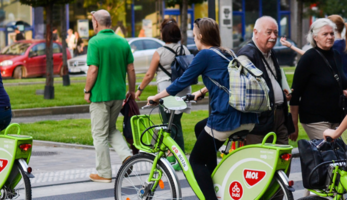Welcome to the Learning Centre
Check out CIVITAS' catalogue of capacity building opportunities on all aspects of sustainable mobility. Filter this collection of e-courses, recorded webinars, and upcoming training events and courses below.
Find e-courses designed by the CIVITAS Secretariat at: https://civitas-learningcentre.talentlms.com/
This is recommended related external content and can be viewed by clicking on it. By clicking you consent to the display of external content. This enables personal data to be transmitted to third-party platforms.
Read more about our privacy policy.
https://www.youtube.com/watch?v=ijUTEHgjjSc
Search capacity building opportunities
Thematic Areas
37 - 45 out of 144 results.










